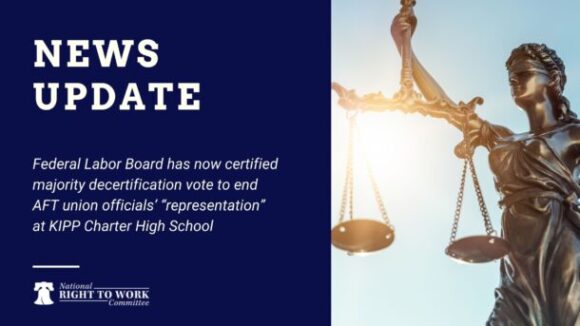Will Team Biden Weaponize Workers’ Pensions?
Big Labor abuse of worker pension and benefit funds as a means of advancing union bosses’ self-aggrandizing policy objectives is a familiar phenomenon.
 Wisconsin Governor Scott Walker: “collective bargaining in the public sector is not a right; it’s an expensive entitlement.” In USA Today, Nick Schultz goes to the mat for Scott Walker and his needed reforms in Wisconsin:
Wisconsin Governor Scott Walker: “collective bargaining in the public sector is not a right; it’s an expensive entitlement.” In USA Today, Nick Schultz goes to the mat for Scott Walker and his needed reforms in Wisconsin:
The claim that “this presidential election is the most important election ever” is an enduring political cliché, and it’s almost always wrong. Consider this year. It’s likely the 2012 race for the White House won’t even be the most important contest of this year, much less of all time.
Wisconsin Gov. Scott Walker is currently the target of a recall effort spearheaded by national public employee unions. If his opponents get enough signatures by Jan. 17, Wisconsin will hold a gubernatorial election this summer. The outcome is crucial to the future of the country.
Wisconsin has emerged as a central battleground in the fight over the outsized political role played by, and the enormous privileges enjoyed by, public employee unions. The collective bargaining entitlement enables public sector workers to extract excessive compensation, benefits, and pension packages at the expense of taxpayers.
In March, Walker signed what is now nationally famous legislation that reformed public employee collective bargaining. The bill was crucial to putting Wisconsin on a sustainable fiscal path.
Guess what? It’s working
The Milwaukee Journal Sentinel, which opposed Walker’s collective bargaining reforms, recently noted, “The governor did balance the budget … he did reduce the structural deficit significantly; he did put a lid on property tax increases; he did give schools and municipalities more control over their budgets than they’ve had in years.”
Milwaukee Mayor Tom Barrett was Walker’s opponent in the 2010 election and later attacked his proposals to reform collective bargaining. But with the reforms on the books, Barrett used some of the bill’s provisions to help reduce the city’s health care bill, saying that the alternative was to cut 300 to 400 city jobs.
If they can knock off Walker, they send a powerful signal to other reform-oriented governors not to target collective bargaining.
As political scientist Daniel DiSalvo notes in a recent issue of National Affairs, “public-sector unions have significant advantages over traditional unions. For one thing, using the political process, they can exert far greater influence over their members’ employers — that is, government — than private-sector unions can. Through their extensive political activity, these government-workers’ unions help elect the very politicians who will act as ‘management’ in their contract negotiations — in effect handpicking those who will sit across the bargaining table from them … Such power led Victor Gotbaum, the leader of District Council 37 of the AFSCME in New York City, to brag in 1975: ‘We have the ability, in a sense, to elect our own boss.’ ”
Collective bargaining reform is also needed to enable genuine education reform.
In a recent discussion, Walker told me that “collective bargaining in the public sector is not a right; it’s an expensive entitlement.” The struggle to rein in and reform expensive entitlements will define American politics for the next generation. A key front line is in Wisconsin.

Big Labor abuse of worker pension and benefit funds as a means of advancing union bosses’ self-aggrandizing policy objectives is a familiar phenomenon.

What impact does handing a union monopoly power to deal with your employer on matters concerning your pay, benefits, and work rules have on your pay?

Federal Labor Board has now certified majority decertification vote to end AFT union officials’ “representation” at KIPP Charter High School